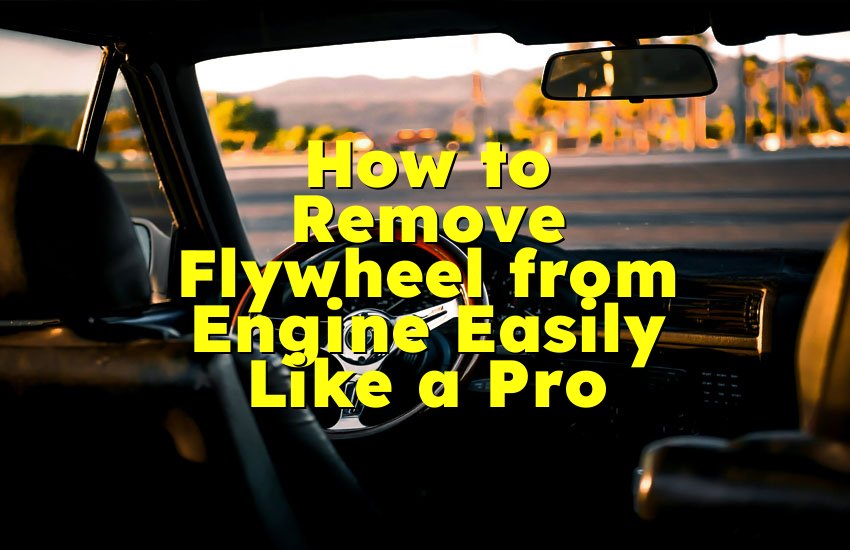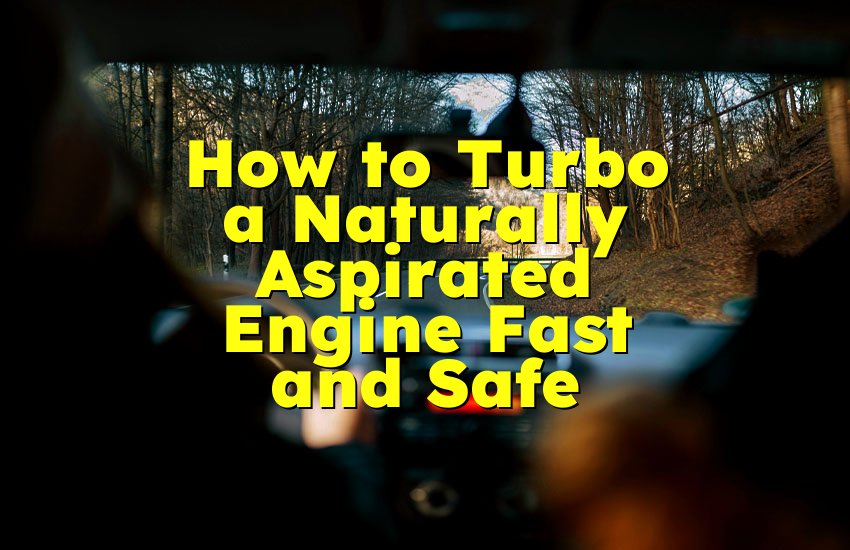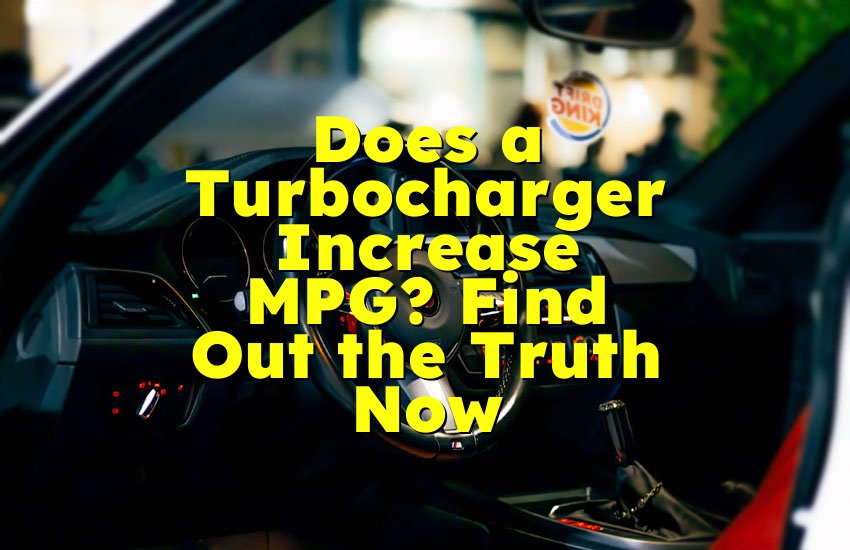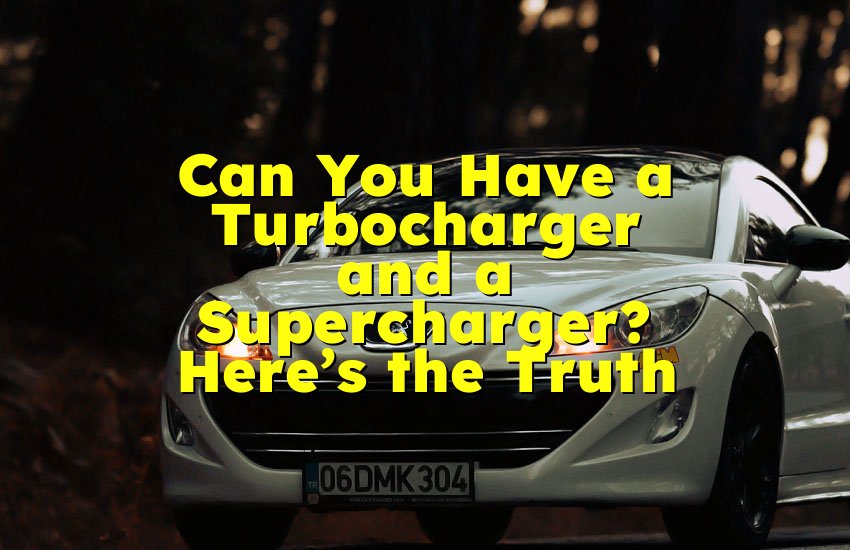As an Amazon Associate, I earn from qualifying purchases at no extra cost to you.
What Happens When Water Pump Goes Out While Driving?
You are driving, everything seems fine, and suddenly the engine temperature goes up fast. Steam might come from under the hood. This can feel scary, especially if you do not know what is wrong. In many cases, the water pump has gone bad. The water pump helps keep your engine cool. If it stops working, your engine can overheat quickly. In this article, you will learn everything that happens when the water pump goes out while driving and what you should do about it.
Your Engine Starts Overheating Fast
When the water pump fails while you are driving, the engine temperature can rise very quickly. This happens because the water pump’s main job is to move coolant through the engine and radiator. When it stops working, the coolant does not flow, and the heat builds up in the engine. This is very dangerous for your car.
Most cars have a temperature gauge on the dashboard. When the water pump stops working, this gauge will climb fast. You might even see steam coming from under the hood. This means the coolant is boiling and turning into steam, which can be very dangerous if the pressure builds up too high.
Many drivers first notice something is wrong when they see a warning light or the temperature needle going into the red zone. Sometimes, a ‘check engine’ light might also come on. If you ignore these signs and keep driving, the engine can become so hot that it starts to break.
Inside your engine, there are metal parts that must stay at a safe temperature. If these parts get too hot, they can warp or crack. This kind of damage is very expensive to fix and may even destroy the engine fully.
Another thing to notice is that when the engine gets too hot, the oil also becomes thin. Oil helps parts move smoothly, but if it gets too hot, it loses its power to protect the engine. Without the right oil thickness, metal parts will rub and wear out faster.
You may also smell something sweet or burnt. Coolant has a sweet smell, and if it leaks because of a broken water pump, you might notice it. This is also a warning sign.
Sometimes, your car may start acting weak. You may feel a loss of power while driving. This is because the engine is not working at the right temperature.
If your engine gets too hot for too long, it can lead to a blown head gasket, cracked engine block, or other deep damage. These repairs cost a lot and can take many days to fix.
If you see your car overheating, the best thing to do is pull over safely and turn off the engine. Do not open the radiator cap when the engine is hot. This is very dangerous. Wait for the engine to cool down before checking anything.
- Temperature gauge goes high fast
- Steam from the hood
- Sweet or burnt smell
- Loss of engine power
- Warning lights turn on
- Risk of head gasket or engine block damage
- Engine oil gets too thin and loses power
Coolant Stops Moving in the Engine
The main job of the water pump is to push the coolant all through the engine and back to the radiator. This keeps the engine at a good temperature. When the water pump stops working, the coolant cannot move. It just stays still inside the engine. This leads to big trouble.
Think of the water pump like a heart. It pumps coolant like the heart pumps blood. Without the pump working, the system breaks down. The coolant just sits in one place, and the engine gets hotter and hotter.
At first, you may not notice anything except the temperature gauge rising. But if you keep driving, the engine starts to feel very hot. You might hear strange sounds like knocking or ticking. These sounds mean the engine is working too hard and starting to suffer.
Coolant that stays still in one spot can also start to boil. When it boils, it becomes steam. Steam creates a lot of pressure in the cooling system. This pressure can break hoses, crack the radiator, or even damage the engine.
Also, if your coolant does not move, it cannot carry the heat away. So the engine just keeps getting hotter. It’s like running a machine with no way to cool it down. This can be a disaster for your engine.
The radiator, heater core, and coolant hoses all depend on the pump working right. If they do not get the coolant moving, they can overheat too. Your car’s heater may also stop blowing warm air because hot coolant is not reaching it.
You may also see coolant leaking under your car. When the pump goes bad, it may start leaking from the front or around the timing belt area. This leak tells you the pump is failing or already broken.
When the coolant is not flowing, your engine can suffer from something called ‘hot spots’. These are areas where the heat builds up more than in other parts. These spots can crack or melt parts inside the engine.
If you notice no heat coming from the vents, coolant leaks, or the engine heating up fast, it is a sign the coolant is not moving.
- Coolant becomes still and can’t flow
- Radiator can’t cool the engine
- No hot air from heater vents
- Risk of coolant boiling into steam
- Hoses or radiator may burst from pressure
- Coolant leaks may appear
- Engine suffers from ‘hot spots’
Strange Noises Begin to Come from the Engine Area
When the water pump goes out, it often makes noise before or during the failure. These sounds are not just annoying, they are also strong signs that something is wrong.
One common sound is a whining or grinding noise that comes from the front of the engine. This sound often means the water pump bearing is worn out. The bearing helps the pump spin smoothly. If it gets dry or broken, the pump starts to grind.
Another noise can be a high-pitched squealing sound. This happens when the water pump pulley becomes loose or the drive belt starts slipping. When the pump seizes up or stops spinning, the belt that turns it may also make noise.
Sometimes, you may hear a knocking sound. This happens when the internal parts of the pump break and move around inside. This can damage other nearby parts too.
These sounds usually get louder the longer you drive. If your water pump is making noise, it’s best to get it checked as soon as possible.
Ignoring these noises can lead to the water pump fully failing while you’re driving. If it fails suddenly, your engine will overheat very fast. The strange noises are like a warning siren. They are trying to tell you that something is going wrong inside the engine.
It’s not only the pump that makes noise. If the coolant leaks out and dries up, other engine parts may also make strange sounds because they are getting too hot. This can include ticking, pinging, or even small pops if the coolant touches something very hot.
Listening closely while you drive can help you catch a failing pump before the engine overheats. Pay attention to anything that sounds unusual, especially from the front of the engine.
- Grinding or whining sound from the pump
- Belt squealing or slipping noises
- Knocking from broken pump parts
- Engine ticking or popping from overheating
- Sounds get louder with more driving
- Warning sign to get engine checked quickly
You May Lose Heating Inside the Car Cabin
Another thing that happens when the water pump goes out while driving is your car's heater may stop working. This can be confusing at first, especially in cold weather. But it's one of the clear signs that something is wrong with the cooling system.
The car heater works by using hot coolant from the engine. This coolant passes through a small part called the heater core. Then, a fan blows air over the heater core and into your car. That's how you get warm air.
But if the water pump goes bad, the coolant can’t move. So the heater core doesn’t get hot. As a result, you will feel cold air blowing even when the heat is turned on full.
Many people first notice this problem when they turn on the heater and feel no warmth. If you check the engine and see the temperature is rising fast, the two problems are connected.
This is a warning that your water pump might not be pushing coolant through the system. It may still be running a little or just starting to fail, but the heater will be the first to stop working.
If the heater stops blowing warm air, it means coolant is not reaching all the parts of the engine. Sooner or later, this will cause overheating and damage.
Also, if there's air in the system because of a coolant leak, that can block coolant from getting to the heater core too. A broken water pump can cause this kind of leak.
So, if your heater stops working, do not ignore it. It’s not just about staying warm. It’s a sign your engine is not cooling the right way anymore.
- Heater blows cold air even on high setting
- Coolant not reaching heater core
- One of the first signs of pump failure
- Overheating often follows this problem
- Air may enter the cooling system from leaks
- Not just a heater issue, it’s a cooling issue
You See Coolant Leaking or Puddles Under the Car
A very clear sign that your water pump has gone bad is when you see coolant leaking under your car. Coolant looks green, pink, orange, or blue and has a sweet smell. If you notice puddles of this under your engine, it often means the water pump is leaking.
The water pump has seals and gaskets that keep coolant inside. When the pump wears out, these parts break down. As a result, coolant starts to leak. This can happen slowly at first and then get worse over time.
You may also notice coolant dripping from the front of the engine or near the timing belt cover. If you open the hood, you might see white stains or crust around the pump area. These are signs of dried coolant, meaning it has been leaking for a while.
The leak can cause the coolant level to drop. When that happens, the engine won’t have enough coolant to stay cool. This leads to fast overheating.
If the coolant leaks onto the belts or other parts, it can cause more damage. Belts can slip, and the engine can misfire. Sometimes, the coolant can even reach electrical parts and cause shorts.
It's important to check the coolant level if you suspect a leak. But remember, only check it when the engine is fully cool. Opening the cap while hot can cause burns from hot steam.
Fixing a leaking water pump quickly is the best way to avoid engine damage. Don't wait until the pump completely fails while driving.
- Puddles or drops of coolant under the car
- Sweet smell near the engine
- Dried coolant stains near the pump
- Risk of coolant loss and overheating
- Can damage belts and other engine parts
- Coolant leaks often mean pump is worn out
Your Engine Might Fully Break Down or Stop Running
If you keep driving with a bad water pump, the final and worst thing that can happen is full engine failure. This is serious and can leave you stuck on the road with a car that won't start or move.
The engine gets hotter and hotter if the pump is not working. After a while, the heat can cause the head gasket to blow. This means coolant and oil will mix, and the engine won't be able to run right.
A blown head gasket can also make white smoke come out of the exhaust. Your car might lose power, make loud knocking sounds, or just shut off by itself.
In some very bad cases, the engine block can crack. That is one of the worst damages a car can get. At that point, the engine may need to be replaced fully, which costs thousands of dollars.
If the engine stops while you’re driving, you may lose control of the power steering and brakes. That makes driving very dangerous and can lead to accidents.
Sometimes, people keep driving even with overheating because they think they can make it home. But every second the engine runs too hot, it causes more damage. Even a few minutes can be too much.
If your engine shuts off, it’s best to stop safely and get help. Do not try to restart the engine right away. Let it cool and call for a tow.
- Total engine shutdown
- Head gasket damage or full failure
- Cracked engine block
- White smoke from exhaust
- Loss of power, steering, or brakes
- Very high repair costs
- Driving further can destroy the engine completely
Final Thoughts
A bad water pump is a small part that can cause huge problems if not fixed. It can make your engine overheat, cause leaks, and even lead to engine failure. If you see signs like high temperature, strange sounds, or coolant leaks, it’s important to act fast. Do not ignore these warnings. Taking care of your car early can save you from big repair bills and help keep you safe on the road.
Frequently Asked Questions (FAQs)
Is it safe to drive with a bad water pump?
No, it is not safe to drive with a bad water pump. When the water pump fails, it stops moving coolant through the engine. This causes the engine to overheat quickly. Driving in this condition can lead to serious damage like a blown head gasket or even a cracked engine block. These repairs are very expensive. Even if your car seems fine for a few minutes, it can break down suddenly. If you think the water pump is bad, stop driving and get it fixed as soon as you can.
Can a car overheat without warning if the water pump fails?
Yes, a car can overheat without much warning if the water pump fails suddenly. Sometimes, the pump breaks all at once while you are driving. In this case, the coolant stops moving, and the engine temperature can rise fast. You may not get much time before the engine gets too hot. That's why it’s important to watch for signs like leaks, noises, or heat from the vents. A working temperature gauge can help, but not all cars show overheating soon enough.
Do I need to replace the water pump with every timing belt change?
In most cases, yes. If your water pump is driven by the timing belt, it is a smart idea to replace it when the belt is changed. This saves you time and money because both parts are in the same area. If you replace the timing belt but leave the old water pump, you might need to take everything apart again later. Water pumps usually last about the same time as timing belts, so changing them together is a good plan.
Is it normal for coolant to leak from the water pump area?
No, it is not normal. Coolant leaking from the water pump area means there is a problem. It could be a worn-out seal, gasket, or the pump itself. If you see colored fluid under your car or smell something sweet near the engine, you should check for leaks. Even small leaks can turn into bigger problems. Coolant loss can lead to overheating, which can damage your engine. It's better to fix a leaking pump before it gets worse.
Can I drive short distances with a broken water pump?
Even driving short distances with a broken water pump is risky. The engine may overheat in just a few minutes, especially on hot days or in traffic. If the pump is fully broken, the coolant won't flow at all, and the temperature can rise very fast. If the engine gets too hot, it can suffer damage that costs a lot to repair. It's best to avoid driving and get the car towed or repaired quickly.
Do I need to replace the thermostat with the water pump?
Sometimes yes, but not always. If the thermostat is old or if there are signs of overheating, it’s a good idea to change it with the water pump. The thermostat controls when coolant flows into the engine. If it gets stuck, your engine can still overheat, even with a new water pump. Many mechanics suggest replacing both at the same time as a safety step, especially if they are hard to reach.
Is it okay to top off coolant when the water pump is leaking?
Topping off coolant may help for a short time, but it is not a real fix. If the water pump is leaking, the coolant will just leak out again. You might prevent overheating for a few miles, but the problem will not go away. In fact, driving this way can make things worse. The pump may fully fail, and the engine could overheat fast. It's better to fix the leak properly.
Can I replace the water pump myself?
If you have some mechanical skills, tools, and a repair guide, you might be able to replace the water pump yourself. But it depends on your car's make and model. Some water pumps are easy to reach, but others require removing the timing belt, which is harder and needs more care. If the pump is hard to get to, or if you are not sure, it's safer to let a mechanic do it. Doing it wrong can lead to engine damage.











